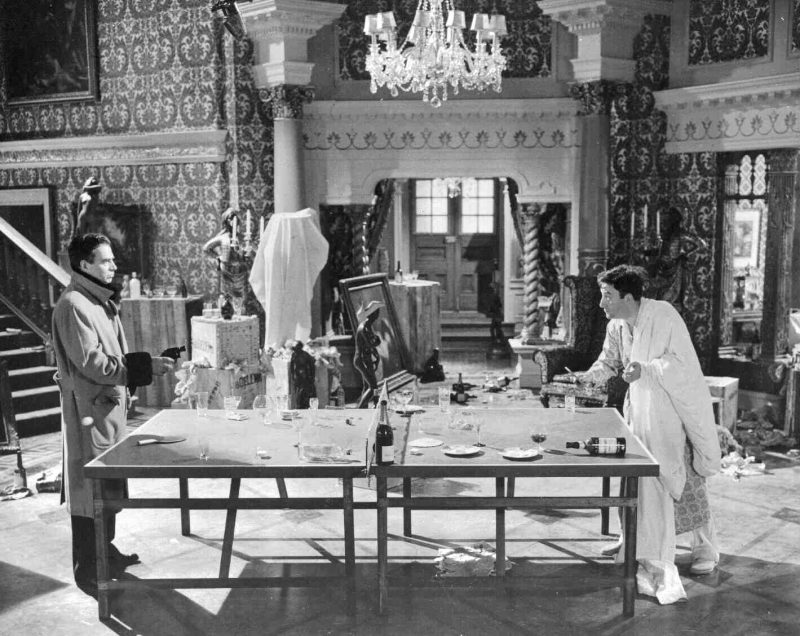Hats and Cream Pies
In Vladimir Nabokov’s novel Despair, the protagonist, Hermann, ambling up a wooded hill, finds a man he believes to be his perfect physical double. Hermann and his double, Felix, stare at each other. Hermann raises his right arm, but Felix doesn’t move. Hermann closes his left eye, but finds Felix waiting with both eyes open. Hermann sticks out his tongue, but Felix just looks confused. A few pages later, Felix catches on: when Hermann withdraws a handkerchief from his pocket, Felix withdraws one, too.
The encounter recalls the famous mirror scene from the Marx Brothers film Duck Soup. Harpo—playing a spy disguised as Groucho—crashes into a mirror at the mansion where Groucho is spending the night, shattering it. Groucho comes downstairs in his nightcap and gown to investigate the disturbance, only to find a “reflection” of himself—nightcap and gown, bushy mustache and all—on the other side of the shattered glass. Groucho is suspicious; he peers into the non-mirror and begins to “test” it. In his efforts to convince Groucho nothing is awry, Harpo echoes Groucho’s every action. When Groucho nods, Harpo nods. When Groucho does the Charleston, Harpo follows suit.
Nabokov loved the Marx Brothers. In a 1970 interview, he spoke of his love for classic American comedy. Brushing aside his interlocutor’s suggestion that he might have been influenced by avant-garde German cinema of the 1920s and ’30s, Nabokov instead cited his affection for Buster Keaton, Harold Lloyd, Charlie Chaplin, Laurel and Hardy, and the Marx Brothers. “In Europe I went to the corner cinema about once in a fortnight,” he said, “and the only kind of picture I liked, and still like, was and is comedy of the Laurel and Hardy type.”
What, then, is this “type”? The artists Nabokov mentions in the interview share an exuberant joy in comedic chaos, a love of puns and language play (verbal and visual), a propensity to bend the limits of what everyone else takes as reality, and, most of all, a commitment to slapstick, which includes all of the above. The term slapstick derives from a Renaissance theater practice in which actors simulated beating one another using paddles that made a slapping noise when clapped together.
If its denotation is a bit vague—the Dictionary of Film Terms defines slapstick as “comedy derived from broad, aggressive action, with an emphasis often placed on acts of harmless violence,” while in Merriam-Webster it’s “comedy stressing farce and horseplay”—its connotation is relatively stable. Slapstick’s associations with the body and violence, its childlike or preverbal quality, and its lowbrow, vaudevillian roots give the practice an undignified reputation as...
You have reached your article limit
Sign up for a digital subscription and continue reading all new issues, plus our entire archives, for just $1.50/month.
Already a subscriber? Sign in





